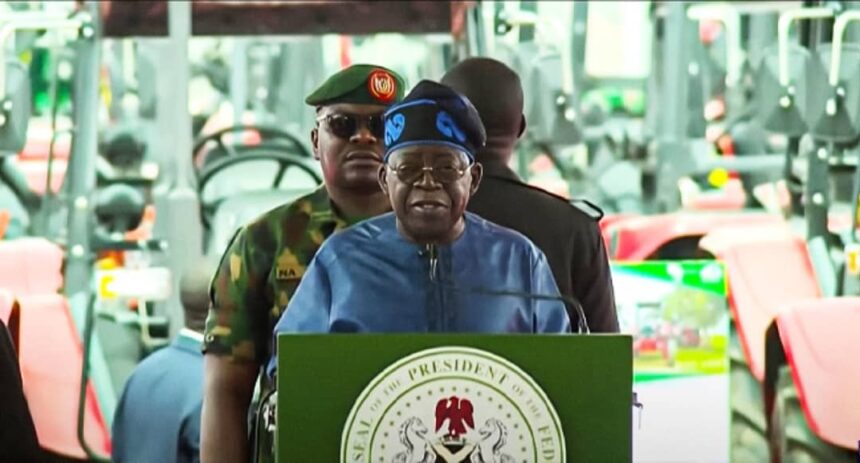President Bola Ahmed Tinubu has stated that his administration is actively working to make farming more appealing to Nigerian youths.
Speaking at a public event focused on agricultural development, Tinubu explained that the government’s current agricultural policies are designed not only to boost food production but also to engage the younger generation in farming by making it more profitable, modern, and respectable.
According to the president, agriculture remains one of the most critical sectors in the country’s economy and holds the potential to reduce unemployment, fight hunger, and drive economic growth.
He said that the traditional image of farming as tedious and unprofitable is outdated and must be changed to reflect the opportunities now available through technology, innovation, and agribusiness.
“We are making farming more sexy to youths,” President Tinubu said during his address. “We are changing the narrative. We want our young people to see agriculture as a career of dignity, wealth creation, and national service.”
The president noted that one of the key strategies of his administration is to modernize the agricultural sector by investing in mechanization, providing access to credit, and promoting value chain development. He said that these steps are already being taken through government-backed initiatives such as the Presidential Fertilizer Initiative, the distribution of improved seedlings, and targeted support for agritech startups.
Tinubu stressed that youth participation is essential for the future of food security in Nigeria. He added that farming is no longer just about manual labor but about smart solutions, data-driven techniques, and commercial viability. To support this transformation, the government is partnering with private investors, financial institutions, and development organizations to fund youth-led agricultural ventures.
In addition, the president highlighted ongoing reforms aimed at removing bureaucratic obstacles that have long discouraged young people from entering the agricultural space. These include streamlining access to land, reducing delays in processing agricultural loans, and enhancing training programs through agricultural colleges and extension services.
He also pointed to successful youth entrepreneurs in agriculture as examples of what is possible when the right support is provided. According to Tinubu, these individuals are proof that farming can be a viable and prestigious career, particularly when linked to agro-processing, exports, and digital marketing.
Reactions to the president’s remarks have been mixed. Supporters see the statement as part of a necessary cultural shift to rebrand agriculture and attract new talent to a sector that has traditionally been dominated by older generations. They argue that with Nigeria’s rising youth population and high unemployment rates, engaging young people in farming could help solve multiple economic and social challenges.
Critics, however, argue that beyond rhetoric, the government must demonstrate real commitment through policy implementation and the removal of systemic barriers that hinder youth participation. Many have called for more transparency in agricultural funding schemes and better infrastructure to support rural farmers, including roads, electricity, and irrigation systems.
Agricultural experts also note that addressing insecurity in rural areas is crucial. Many young Nigerians are reluctant to invest in farming in regions affected by banditry, herder-farmer clashes, and kidnappings. Without improved security, they argue, efforts to make farming attractive may not yield significant results.
President Tinubu’s administration has made agriculture a central focus since assuming office in May 2023. With food inflation at record highs and millions of Nigerians facing food insecurity, the government has launched a number of interventions, including direct farm support and plans to cultivate over 500,000 hectares of land nationwide.
While it remains to be seen how successful these initiatives will be in transforming the sector and increasing youth participation, the president insists that the foundation is being laid for long-term change. “The future of Nigeria’s food security and economic independence lies in the hands of our young farmers,” Tinubu said.





